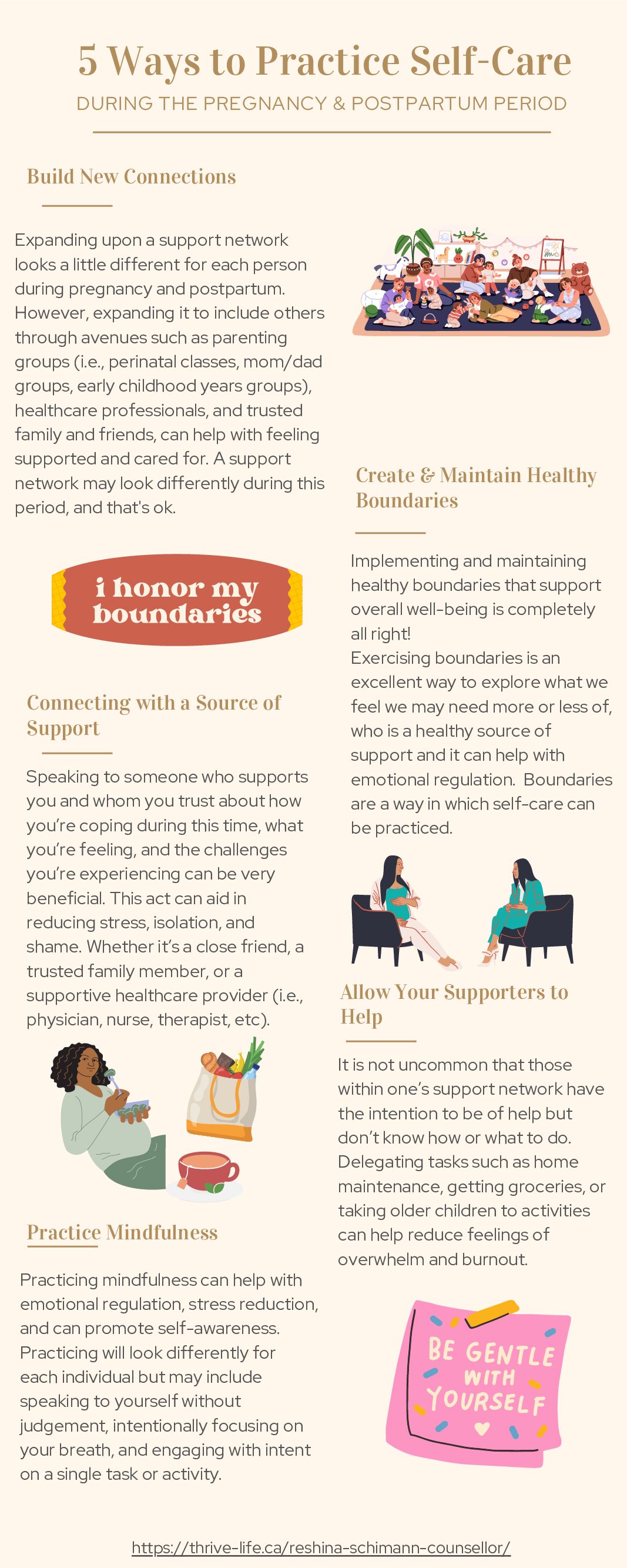5 Ways to Practice Self-Care during the Perinatal Period
"Having a baby is a psychological revolution that changes our relation to almost everything and everyone.” -Esther Perel
Whether making plans to become pregnant, having your first baby, or welcoming your fourth, the journey of pregnancy and postpartum look vastly different for each individual. From navigating changes in hormones, caring for a newborn, to a lack of consistent sleep, the perinatal landscape can be one of uncertainty, overwhelm, and higher levels of stress. Media depictions of this sacred period of life often portray falsehoods such as ease in adjustment to the pregnancy and postpartum period, instant mother-infant bonding, and natural confidence in caretaking. However, for many individuals and families, these media portrayals are vastly different to real-life experiences. With added societal pressures, the challenges and realities experienced during the perinatal period can invoke feelings of shame, frustration, and induce a lack of self-compassion.


Perhaps infant feeding isn’t going how you hoped or planned for, your birthing experience was not what you envisioned, or you’re having a challenging time regulating your emotions due to the vast and constant changes during this season of life. If this resonates with your own experiences or a loved one’s, you may be wondering what can be done? Curiosity is an excellent place to start.
Listed below are just five ways in which you can practice or explore self-care:

These are some ways in which self-care practices can be implemented during the perinatal period. If you are looking to speak with a therapist to speak to about your experiences or challenges, I would love to connect with you and can be reached at reshinaschimann@thrive-life.ca
Resources:
HealthLink BC. (2018). Coping With Postpartum Depression and Anxiety. Coping With Postpartum Depression and Anxiety | HealthLink BC. https://www.healthlinkbc.ca/pregnancy-parenting/labour-and-birth/after-labour-and-care-new-moms/coping-postpartum-depression
Mosunic, C. (Ed.). (2024, February 15). 10 mindfulness exercises to include in your daily routine. Calm. https://www.calm.com/blog/mindfulness-exercises
Pacific Postpartum Support Society (BC, Canada): https://postpartum.org
Postpartum Support International: https://www.postpartum.net
Pan, WL., Lin, LC., Kuo, LY. et al. Effects of a prenatal mindfulness program on longitudinal changes in stress, anxiety, depression, and mother–infant bonding of women with a tendency to perinatal mood and anxiety disorder: a randomized controlled trial. BMC Pregnancy Childbirth 23, 547 (2023). https://doi.org/10.1186/s12884-023-05873-2
Provincial Health Services Authority. (2024). BC Reproductive Mental Health Services. BC Women’s Hospital. http://www.bcwomens.ca/our-services/mental-health-substance-use/reproductive-mental-health
*Professional disclaimer: The psychotherapy information provided is for general information and educational purposes only and is not a substitute for professional advice. Accordingly, please consult with appropriate healthcare professionals.
